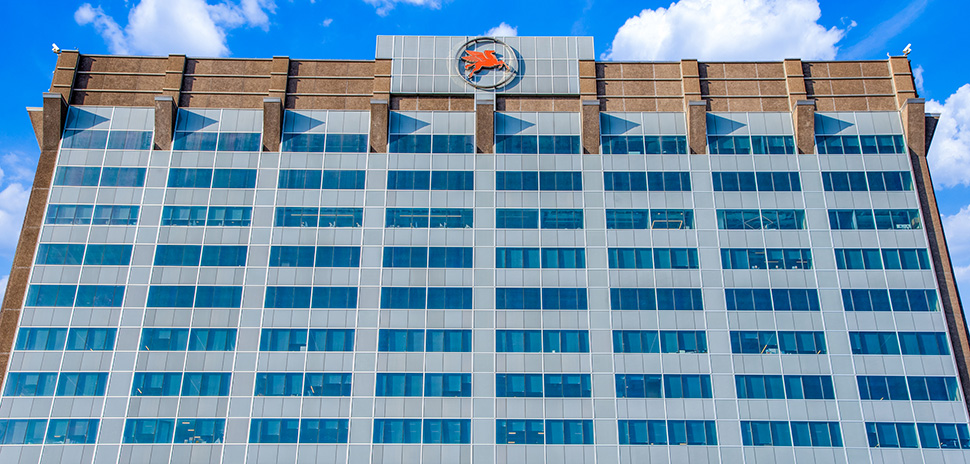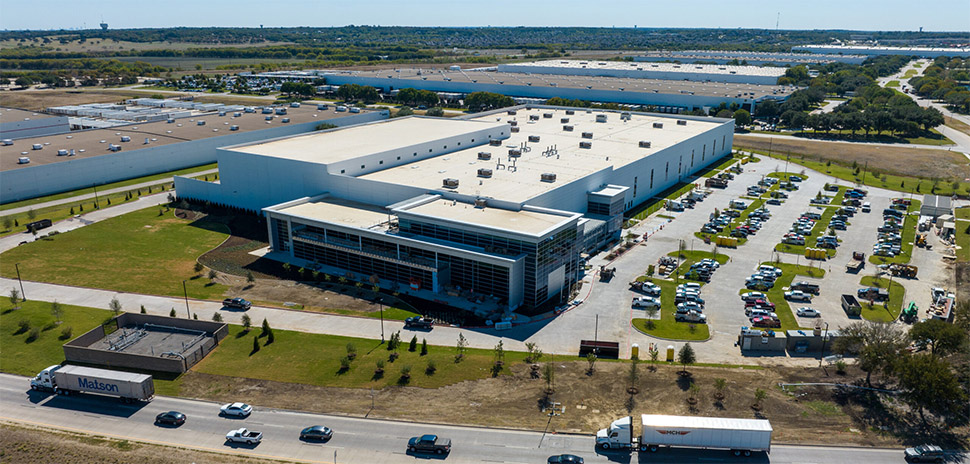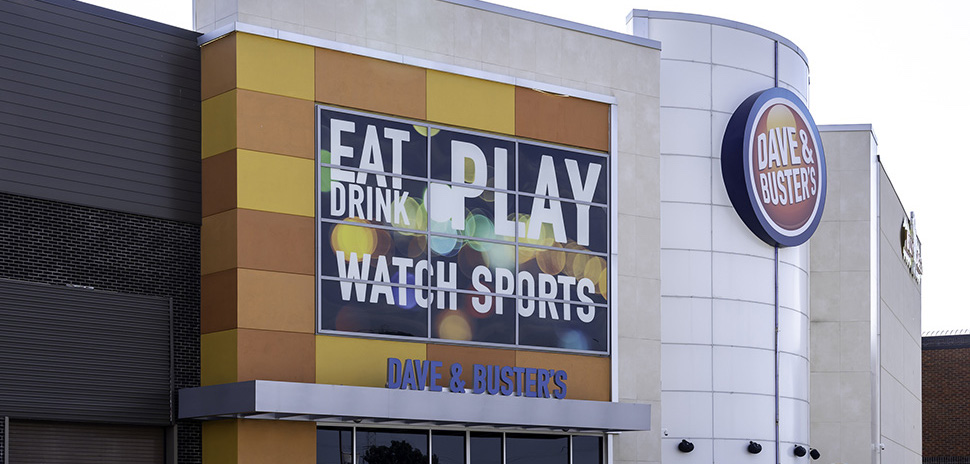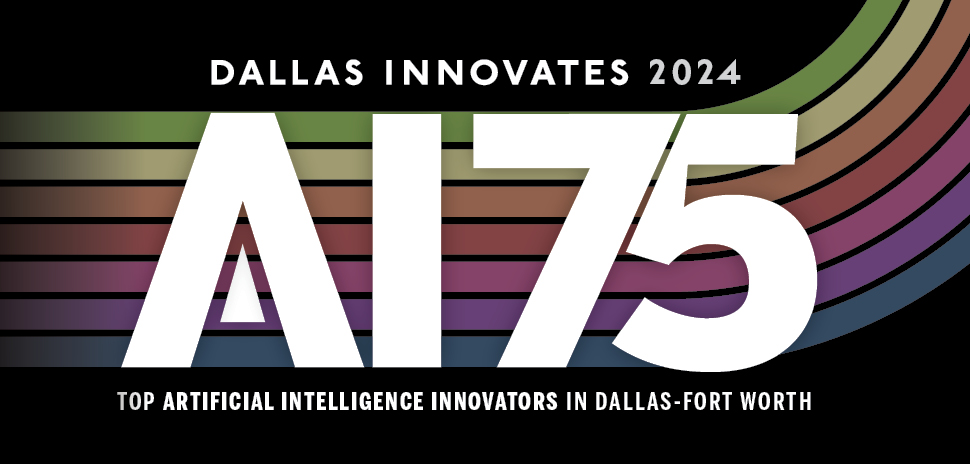In a major win for Texas—and a big boost for Dallas—the Advanced Research Projects Agency for Health (ARPA-H) has announced the launch of ARPANET-H, a nationwide health innovation network anchored by three ARPA-H regional hubs.
Aiming to revolutionize medical research, the $2.5 billion ARPA-H initiative is modeled after the defense research agency DARPA. In a multi-city Texas bid, Dallas, Houston, Austin, and San Antonio competed to win one of the regional hubs from the newly created federal agency.
Today’s announcement awarded one of the three ARPA-H hubs to the Texas consortium—a Customer Experience hub that will be physically located at Dallas’ Pegasus Park, a 26-acre life science and social impact-focused campus.
The other two hubs include the Investor Catalyst hub, awarded to Cambridge, Massachusetts; and the Stakeholder and Operations hub, to be located in the Washington, D.C, region.
Aiming for ‘game-changing breakthroughs’ in science and medicine
The hubs will be “mission-focused, regional centers with a growing network of spokes from around the country representing the diversity of people, settings, and capabilities that encompass the American health ecosystem,” the agency said, adding that the “hubs and spokes” will collaborate with ARPA-H to catalyze game-changing breakthroughs in science and medicine that improve health outcomes.
The overarching goal of ARPANET-H will be to enable health problems to be solved faster, with accessible, equitable solutions reaching the American public more quickly—advancing President Biden’s Unity Agenda “by driving innovation of new ways to prevent, detect, and treat for cancer, Alzheimer’s, diabetes, and other diseases.”
ARPA-H Director Renee Wegrzyn, Ph.D. said ARPA-H “has an enormous opportunity and responsibility to improve the well-being of all Americans.”
“Through this nationwide hub-and-spoke network, ARPANET-H will enable ARPA-H to create breakthrough capabilities and achieve health outcomes for everyone that are accessible, tangible, and measurably better,” Wegrzyn said in a statement. “Regardless of location, ARPA-H funding will support the best and brightest ideas across the country, with opportunities for universities, companies, and non-traditional performers.”
“ARPANET-H is a testament to our commitment to inclusivity and innovation in health care,” HHS Secretary Xavier Becerra added. “With its vast array of cutting-edge health capabilities, this dynamic nationwide network embodies our unwavering mission to propel forward health outcomes in every corner of the country—and beyond.”
Hub win is the result of a two-year, multi-city collaboration
Texas’ hub win is the result of a two-year, multi-city collaboration, beginning with a three-city bid from Dallas, Austin, and San Antonio. Houston, which initially did its own application, later joined the partnership.
“We were thrilled to have them as partners in the final bid,” said Nicole Small, CEO of Lyda Hill Philanthropies.
And that’s not all, Small told Dallas Innovates today:
“We’re so thrilled for Texas. We’re thrilled for the future of health in this country. We’re just really excited about the opportunity for Texas to play a significant role in this hub-and-spoke model across the country with ARPA-H. There are important discoveries that are going to be made, and we’re excited that Texas can play a role in that.
ARPA-H is a ‘cancer moonshot’ and much more
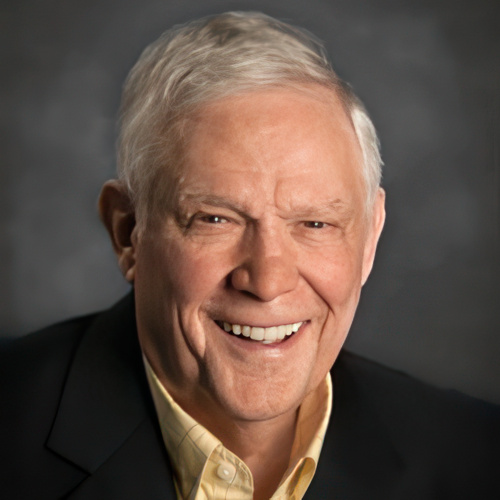
Tom Luce
In April,Tom Luce, CEO of Biotech Initiatives at Lyda Hill Philanthropies, cited the region’s robust healthcare system and diverse range of medical and research expertise in the three cities as key factors bolstering the consortium’s bid.
According to Luce, the Biden administration created ARPA-H to improve health outcomes for the diverse population of the U.S. President Biden has talked about ARPA-H as a “cancer moonshot,” but the program aims to address many other medical problems such as diseases of the brain, obesity, diabetes, and more, Luce noted.
“An important part of ARPA-H is translating research into actually what gets given to patients and hopefully changes outcomes,” Luce said in April. “We’re not very good at certain health outcomes—outcomes with certain populations in particular.”
Luce said Texas is the second-largest funder of cancer research in the country, making it a prime location for the agency, Luce noted.
“I think this will really put Dallas on the map with regard to bio life sciences,” Luce said in April, adding that landing the ARPA-H hub here would be “an affirmation of much progress North Texas and the state have made to become a bio life sciences hub in the central part of the country.”
In an announcement today, Dallas Mayor Eric L. Johnson said the ARPA-H hub will “create an influx of jobs, talent, and innovation and further affirm Dallas’ position as a global leader in medical and biomedical research.”
News drops just before BioNTX iC3 Summit
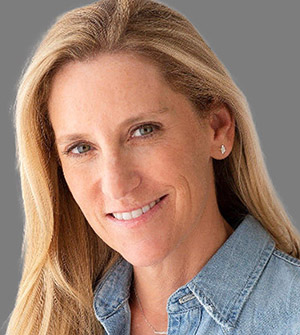
Nicole Small
The news of the ARPA-H hub win dropped just days before this week’s 9th annual BioNTX iC3 Summit, when the nonprofit life science trade organization will once again bring together top minds in North Texas biotech and healthcare. To be held September 28-29 in Irving, the summit unites researchers, entrepreneurs, investors, corporations, and support organizations to forge the relationships that drive progress.
“We like to time things perfectly when we can,” Small joked.
Small called the hub win “an incredibly collaborative effort.”
“We’ve been excited to be part of the team that was catalytic to this bid,” she said. “It’s said that ‘so goes Texas, so goes the rest of the country,’ and we’re talking about a customer experience where we’re focused on patients, patient experiences, and trials. Texas has an incredibly diverse community, and we, like most of the country, have some incredible health challenges. The collaborative nature of the bid, you know, we had over 1,000 partners in the bid—and I think it’s a really exciting opportunity for us to come together.”
The cities came together in a powerful way to snag the win, Small pointed out:
“To be able to show that kind of cohesion as a state is extremely unique. It’s really a Texas bid. It just happens to be located here in Dallas, but this is really a collaborative effort of Austin, Houston, San Antonio, and Dallas, and so many of the smaller cities across the state as well. It really was about collaboration.”
Taking Dallas region ‘to the next level’ for life sciences and biotech innovation
Dale Petroskey, president and CEO of the Dallas Regional Chamber, noted that the DRC provided key economic development, research, and policy support throughout the ARPA-H bidding process, including presenting to the selection committee.
“The news of ARPA-H’s Customer Experience hub coming to Dallas confirms what the Dallas Regional Chamber has known and worked toward for some time now: the Dallas region is becoming a powerhouse for life sciences and biotechnology innovation,” Petroskey said in a statement. “Bringing this hub to Pegasus Park takes this to the next level and will bring many more job opportunities to the Dallas region.”
“Many partners across the state supported this effort,” he added, “so this moment is another example of how Texas’ collaborative spirit leads to more and more opportunities for our people and our companies. The Dallas Regional Chamber is very excited about this win, and we’ll do everything possible to support the success of this great opportunity.”
Key goals of Texas hub
The Customer Experience hub to be physically located at Dallas’ Pegasus Park will focus on developing health solutions that will be “accessible, needed, and readily adopted,” ARPA-H said. “It will take a proactive approach to diversify clinical trials, reach representative patient populations, and more, leading to better and more equitable health outcomes for all.”
“By using a hub-and-spoke model, we’re creating efficiencies that we could not otherwise achieve, including reaching patients, providers, and other stakeholders quickly,” ARPA-H Director Wegrzyn said. “With a nod to the history of DARPA’s original ARPANET that eventually became the internet, we’re establishing the foundation for an ambitious 50 state network to support health innovation across the entire nation.”
ARPA-H has selected a “Consortium Management Firm,” South Carolina-based Advanced Technology International (ATI), to manage the Customer Experience hub.
At Pegasus Park, ARPA-H will access dedicated office and collaboration space alongside ATI. The management firm said that in coordination with the CMF Program Executive, San Antonio will serve as the lead facilitator for Immersive Experience Design in Texas, “given its diverse population, unique health challenges and highly collaborative healthcare and bioscience industry that ranks among the region’s largest economic drivers.”
Potential consortium members nationwide have expressed interest in supporting the launch of the Customer Experience hub and its mission to spur innovation across clinical trials, health outcomes measurement, advanced manufacturing, human-centered design, testing and evaluation, and data integration, ATI added.
Looking at first steps for this ‘very new news’
So what will we see first from the ARPA-H Customer Experience hub?
“Obviously this is all very new news,” Small said. “We’re going to take a bit to see how things roll out. But immediately, to be partnered with Boston sends an important message to the community and to the country that Texas is open for business when it talks about science. We’re going to see some really exciting programs launched out of the ARPA-H hub. We hope we’re going to continue to be able to tell our stories about science and life sciences here in Texas.”
Small sees big possibilities in the Dallas-Boston connection.
“For North Texas to be selected with Boston tells a really strong story,” she said. “Boston is well known as a life sciences hub. The opportunity is for Dallas to connect with Boston and connect to that life sciences community. This was a competitive bid process across the country. It tells our community that we really value science, we value the institutions that we have here. We value our patient population. And I think it’s going to continue to reinforce the exciting work and science that’s happening here.”
Pegasus Park offered an ‘easy to tell’ story
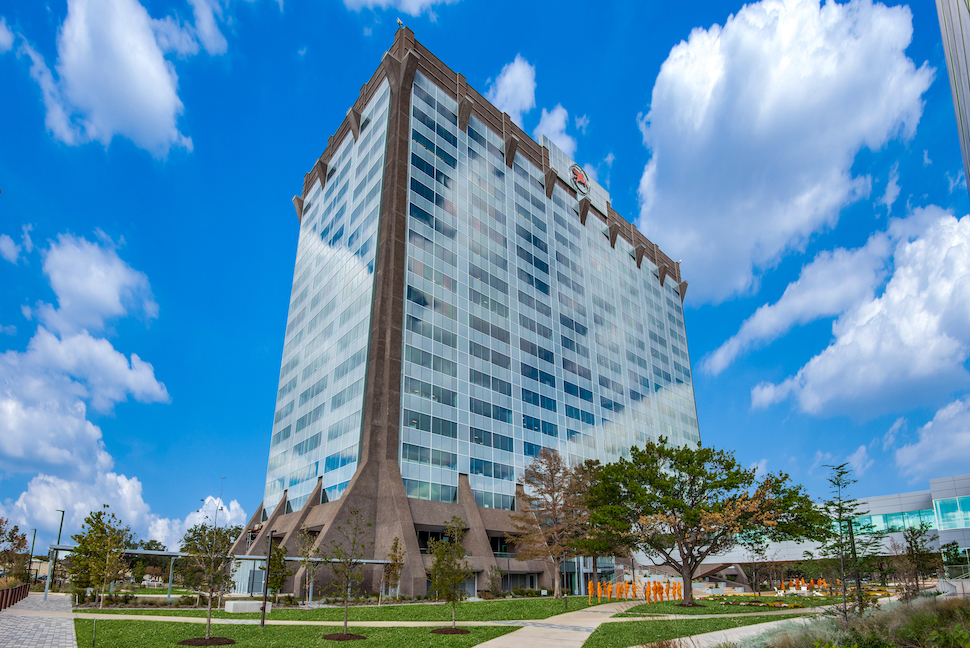
The main building at Pegasus Park [Image: Pegasus Park]
“The fact that Pegasus Park already existed as a life sciences hub made the story really easy to tell,” Small said of the hub win. “We already have an incredible community of life sciences companies, universities, partners, and venture funds spending time in this place. It was an easy story for us to try to connect in to this work. It lines up with the mission at Pegasus, which is improving the lives of our community. It’s a great partnership with all of that. All of the parts and pieces are coming together.”
Quincy Preston contributed to this report.
![]()
Get on the list.
Dallas Innovates, every day.
Sign up to keep your eye on what’s new and next in Dallas-Fort Worth, every day.










